 |
Clockwise from letf: Caleb Azumah Nelson, Sam Riviere, Megan Nolan, Natasha Brown, Abigail Dean, Will Burns, Rebecca Watson, JR Thorp, Ailsa McFarlane, Melody Razak. |
Introducing our 10 best debut novelists of 2021
This is the eighth year in which the New Review team has read through dozens of first novels, looking for books that leap out from the crowd, writers who speak with powerful, fresh voices. Our record is pretty good. Last year we were the first to champion Douglas Stuart’s Shuggie Bain, which went on to win a host of prizes, including the Booker. Stuart says now: “Publishing your debut novel fills you with excitement and a fair amount of anxiety. We live in a noisy world, and it can be challenging for new writers to make themselves heard above the din. To be recognised as one of the Observer’s best debuts changed everything.” Previous luminaries selected also include Sally Rooney, Jessie Burton, Gail Honeyman, Oyinkan Braithwaite and Sara Collins.
This year’s selection of debuts (from writers in the UK and Ireland) is a particularly rich and interesting mix. We have novels that engage with contemporary British life, with questions of race and identity prominent. There are books that seek to explore occluded histories and contested narratives. It’s a list featuring several poets who have turned to the novel as a way of exploring ideas in a more capacious form. Several of the authors reflect either specifically or obliquely on the coronavirus pandemic, while others explore issues of systemic prejudice and social justice. There are a number of short, intense books that can be read in a single sitting, while others attempt to reshape the form of the novel itself. As always, we’re astonished and delighted by the range and ambition of the writers in this list. We look forward to following their careers in the years and decades ahead.
‘So much of writing the book was reckoning with myself’
Caleb Azumah Nelson
Open Water (Viking, 4 February)
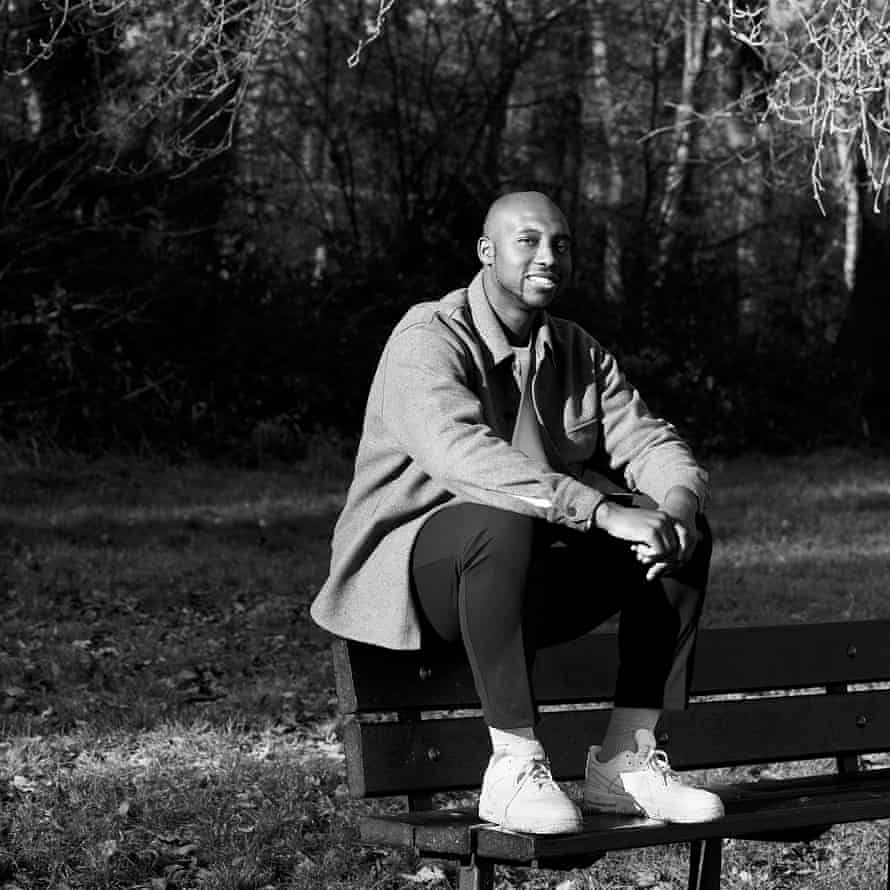
Caleb Azumah Nelson’s debut is a tender and touching love story, beautifully told. Open Water explores the security and safety that love offers, but also its limitations when set alongside vulnerability triggered by violence, fear and loss. Its nameless young couple are both black artists – he a photographer, she a dancer – and the book conspicuously celebrates black achievement (Yaa Gyasi has called it “a love song to black art and thought”). Musicians such as Kendrick Lamar, Frank Ocean and Solange feature alongside James Baldwin, Zadie Smith, Teju Cole and many others – painters, film-makers, photographers. The book is also something of a celebration of south-east London, where Azumah Nelson grew up and where he still lives with his parents, who came to London from Ghana as teenagers.
Azumah Nelson is also a photographer; he inherited a 35mm camera from an uncle, taught himself to use it, and has been working on a series of portraits of “black people in their everyday moments” for a while. But his writing will keep him busy. Last year his story, Pray, was shortlisted for the BBC national short story award and Open Water was the subject of a nine-way bidding auction prior to publication.
How did the book come about?
I was working part-time, at the Apple Store. It was retail, so long hours, and I’d either write before or after work (which could be 5am or 11pm, depending on what shift I was working). I quit my job in July 2019 to focus on writing the novel for a few months. It felt like the right time to gamble on myself!
To what degree is it autobiographical?
It isn’t, but it is very personal… the majority of the events have happened to me and the feelings that those events have triggered [in the book] are feelings that I know well.
A question the book asks is what it means to only be identified by the world as a black person.
There’s a lot of grief in this book, and in large part that is down to loss of self. You’re not being seen as you want to be, and that’s a loss. You leave your house, enter a space and understand that your whole identity won’t be observed.
Has the police harassment you write about been a feature of your own life?
This past year has been the year that I have been stopped and searched the least [because of lockdown]. But in previous years it was usually a couple of times a month.
How do you cope?
So much of writing Open Water was reckoning with myself – understanding on a base level that that kind of harassment is unwarranted; it’s not my fault. I think that it can really weigh down on you, and the protagonist, like me, isn’t always willing to offer up a sense of vulnerability for fear of not being treated very well. I think this book is asking what it would mean for someone to be wholly vulnerable with someone else, and where there would be safety and freedom in that action.
The book has many references to songs and songwriters…
I’m always listening to music. It is so influential to my writing. I played the violin for a long time and had family around me that were always listening to music and passing each other CDs and mixtapes. Hip-hop and jazz, R&B. I remember listening to Kendrick Lamar for the first time at 16 and it being really transformative. Someone taking the nuances of everyday life, of quotidian experiences and putting them down to music in a way that I immediately understood.
You are also a big fan of Zadie Smith…
Yes, I quote her in the book, and NW was a massive influence on me.
Name a favourite debut…
I recently enjoyed Bryan Washington’s novel, Memorial, about the quieter moments of love.
Interview by Ursula Kenny
‘Most important is anyone who can tell you that it doesn’t belong in the bin’
Megan Nolan
Acts of Desperation (Jonathan Cape, 4 March)
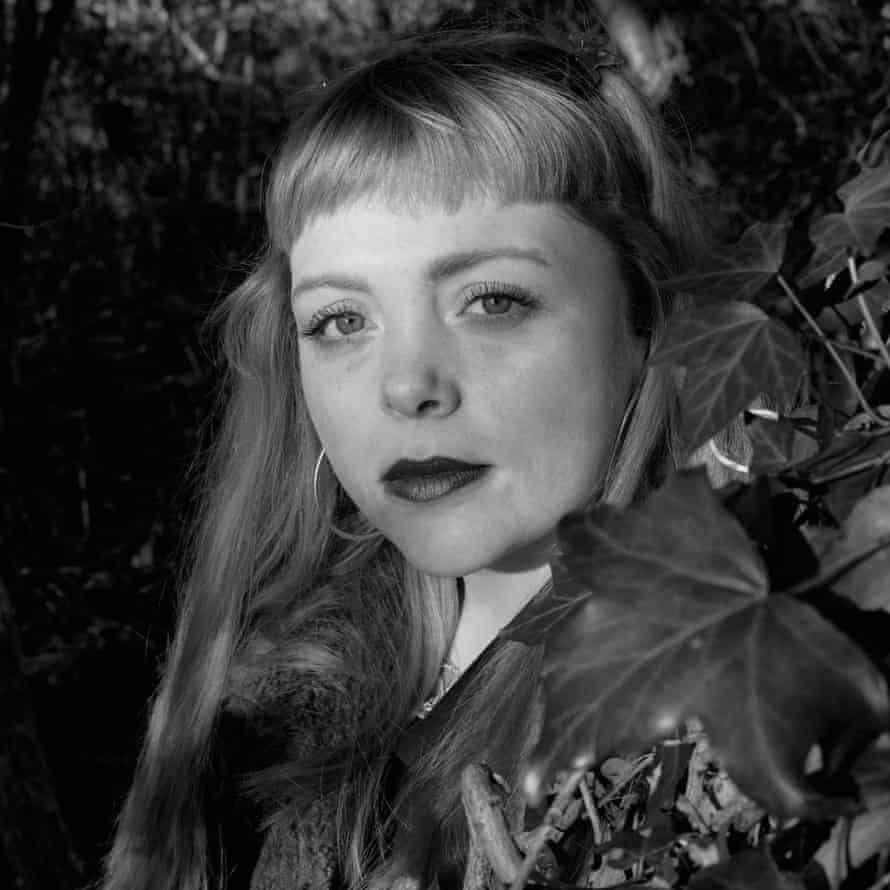
Photograph: Sophia Evans/The Observer
Megan Nolan’s debut novel started life as narrative nonfiction, exploring the destructive, desperate relationships she’d had in her teens and 20s. “I was trying to understand myself and why I had done those things, when I knew it was so degrading to behave that way,” she says. “I had given up an enormous amount in order to be the sort of person these men might like to be with.”
The Irish writer grew up in Waterford, and moved to Dublin and then London in 2015, where she started to work as a freelance journalist; now, the 30-year-old has a New Statesman column and contributes to the New York Times. But it was at a reading at Goldsmiths that her writing attracted the attention of an agent, Harriet Moore, who encouraged her to start developing ideas for a book.
When Nolan started working on it in earnest in 2016, it quickly became apparent to her that essays weren’t going to cut it. She threw away around 15,000 words, and started again, embracing fiction as a way to tell a “really dark and interesting” account of a toxic relationship from beginning to end. Acts of Desperation charts the obsession of an unnamed narrator with a cold, beautiful man named Ciaran with forensic focus and biting honesty. It netted her a two-book deal at Jonathan Cape.
Nolan acknowledges that the “How autobiographical is the book?” question is fair enough in her case: “The narrator has a lot of me in her. The events are fictional – you’re not going to find a boyfriend that’s like Ciaran – but the feelings are all real: the impulses, the reflective insights, that’s all pretty much me.”
Looking back was painful, and Nolan admits she spent a lot of time crying while writing it. And her working conditions sound pretty intense, too: she writes in the dark, with white noise playing, very loudly. “Complete sensory overload, or deprivation. I find it really difficult to write – so I just need to have complete concentration.”
What made you want to be a writer?
My dad [Jim Nolan] is a writer for theatre. I think that was the start: I saw storytelling happening quite regularly.
Best debut you have read?
The Virgin Suicides by Jeffrey Eugenides is my favourite debut novel, and quite influential on my own in terms of drawing all that devotion and obsession.
Where do you write, and what is your work schedule?
I’m a terribly unproductive person, I don’t have a schedule. When I was writing Acts of Desperation I was renting short-term sublet situations, lots of cat sitting, and I went to Greece four years in a row and did a lot of work there. But nowadays – it’s just my kitchen table! When Covid started I had to resign my nomadic lifestyle.
What are the best and worst things about being a writer?
I really like that I don’t have to go to an office. I’m quite outgoing in my personal life, but I found it crippling [in terms of social anxiety] to be in an office setting. I don’t like the necessity of having to be a public-facing figure – which is going to sound unconvincing because I use social media a lot. But it feels quite a stressful thing to have to maintain.
What single piece of advice would you offer to aspiring writers?
If you’re lucky enough to have someone in your life who will read your work, take advantage of that as soon as you can. Really, what hampered my writing for years was the thought that everything I was writing was beyond redemption. Anyone who can give you the minimum assurance that it doesn’t belong in the bin, that’s the most important thing.
Interview by Holly Williams
‘I just found writing fiction so intensely pleasurable’
Melody Razak
Moth (Orion, 24 June)
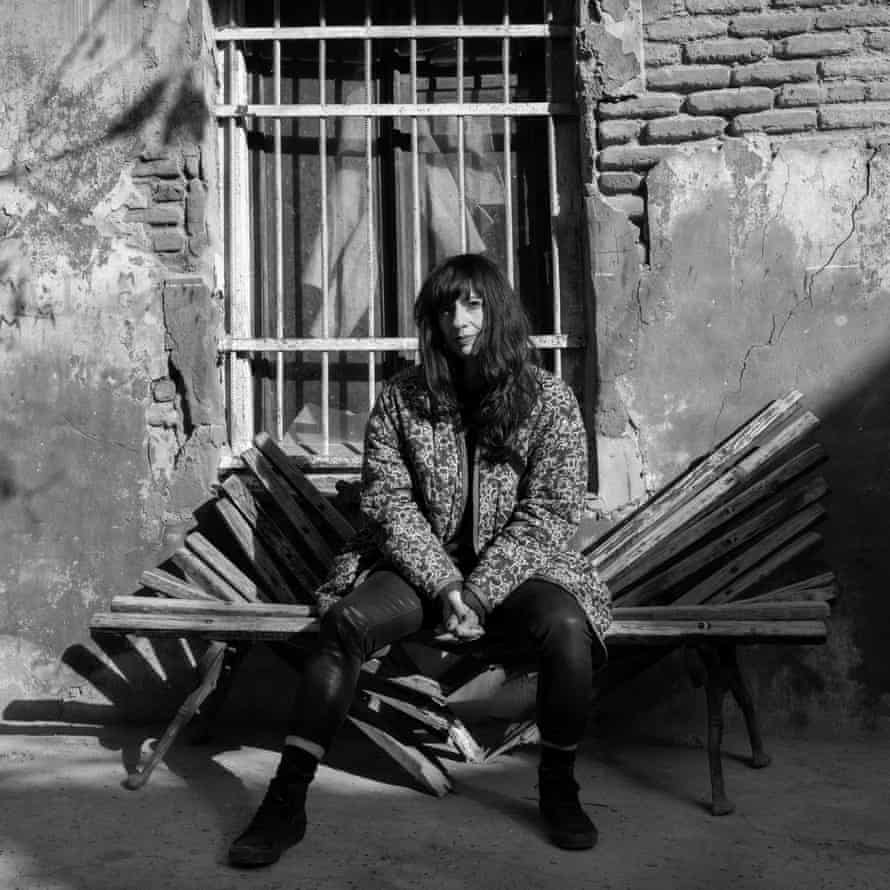
Melody Razak was born and brought up in west London. Her powerful and heartbreaking debut, Moth, tells the story of a liberal Brahmin family living in Delhi in the 1940s, during India’s independence and then partition. The book’s primary and unflinching focus is the female members of the household: Ma, her daughters Alma and Roop, among others, all drawn with such skill and love that they remain with you long after the final sentence.
Razak started writing the book after taking an MA in creative writing at Birkbeck and has had several short stories published. Until recently she worked as a pastry chef at the restaurant Honey and Co and before that she ran a cafe in Brighton. Cooking has played a major part in her life, and in Moth the detailed descriptions of the preparation and serving of food are a constant and healing thread.
Why did you write about partition?
I had a lot of themes but I didn’t know how to structure them into a narrative. One day I was listening to a Radio 4 programme called Partition Voices and they had people in their 80s who had been through partition in India as children, and they talked about their experiences and I found the programme very moving. It stayed with me. Then I remember reading Half of a Yellow Sun [by Chimamanda Ngozi Adichie] and seeing the way the political and the intimate can play together, and I thought I would like to write that way – make people politically aware, but in a way that you react with your emotions. I also wanted to write about India – I have a very strong emotional connection with the country, and spent a lot of time travelling there.
Were the women in the family always going to be the focus?
Once I started researching for the book, everything I read dismayed me so much – the horrifying things that had happened, especially to women. I read so much about women that defied my imagination, but nothing was written from their point of view.
Are your parents anything like Ma and [father] Bappu in the book?
Yes, my mum is like Ma but with a touch of Daddee Ma (the grandmother) too in the sense that she was raised in Iran, so she had very firm religious beliefs. She came to England when she was 18 and had two daughters in England – me and my sister – and so had to adapt to a whole [new] way of thinking to accommodate us. My father is from Pakistan and I don’t really know him very well because we have lost touch. My parents split up. I know that they were very religious and I know that had an impact on me when I was younger. They were strictly Muslim. My mother isn’t strict any more, she’s more spiritual and evolved.
Did you always want to be a writer?
I tried [to write a novel] in my early 20s and didn’t know about form or structure. I was just splurging on the page and gave up halfway through to concentrate on my cooking. When I started the MA I originally wanted to write a cookbook. But after the first term, when we had to do short stories, I just found writing fiction so intensely pleasurable. I felt charged and very alive, and I couldn’t stop thinking about what I was going to write next.
What have you been reading recently?
I’m in Tbilisi, Georgia at the moment, writing my second novel. I had a break over Christmas and read the Neapolitan quartet by Elena Ferrante and that was absolute joy. I literally could not read quickly enough. I couldn’t sleep because I was thinking about the characters. I was so immersed – a wonderful feeling. A couple of essays by Sinéad Gleeson from her book Constellations which blew my mind. So beautifully written, so poignant, very much the sort of writing I aspire to.
What’s the most important thing you have learned about being a writer?
You have to have thick skin and accept any criticism that comes your way, and think about it and perhaps even use it to make the thing you’re doing better.
Interview by Ursula Kenny
‘Rather than fixate on abuse, I wanted it to be about the aftermath’
Abigail Dean
Girl A (HarperCollins, out now)
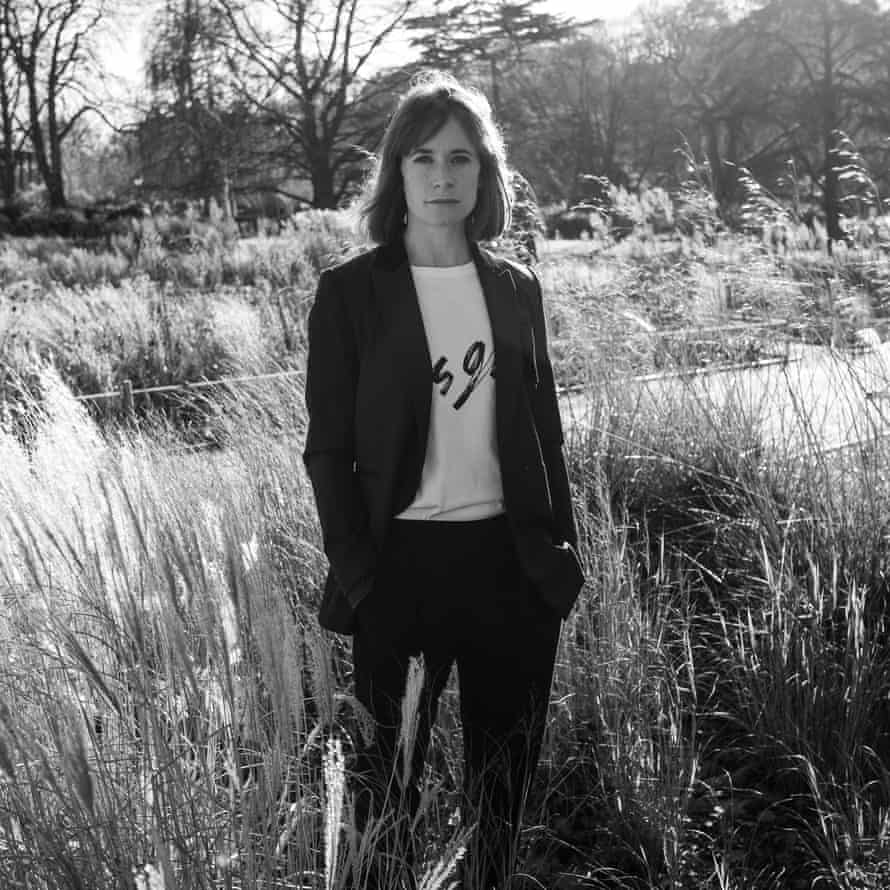
It was the prospect of her 30th birthday that spurred Abigail Dean to write her debut novel, Girl A. As a young girl, she was “constantly” writing stories and dreamed of becoming a novelist. “I grew up in a small village in the Peak District as an only child, so I had a lot of time by myself,” she says. Ironically, it was gaining a place at one of the UK’s most prestigious universities that discouraged her from pursuing her ambition. “I found the creative writing scheme at Cambridge quite intimidating and didn’t think I was up to it. So, my ideas about being a writer just fell away from me,” she says.
A decade later she found herself married, living in Dulwich and working at a big London law firm. “But a life spent in meeting rooms, offices and airport terminals was no longer making me happy,” she says. A three-month sabbatical provided the chance to give herself “another shot” at becoming a writer.
The resulting novel is narrated by Lex, the “Girl A” of the title, who is a successful lawyer based in New York. As a child she lived in northern England, kept prisoner with six siblings in a home the press would later describe as the “House of Horrors”. Lex’s escape led to her father’s suicide and her mother’s imprisonment for the horrific crimes the couple committed against their children. Now her mother has died and the siblings must reconnect and somehow address their shared past. It’s a gripping, disturbing read that looks likely to be a huge bestseller. Dean is already working on her second novel, about a school shooting.
Where did the idea for the novel come from?
I’ve always been fascinated by the idea of sibling relationships and the dynamics and chemistry of big families, probably because of the absence of them in my own life. And one of my other big interests has always been true crime. I consume podcasts and Netflix shows about it. I based the novel on cases like Fred and Rosemary West and the case of the Turpins, who imprisoned and tortured their 13 children in California until one of them escaped in 2018.
Did you have any trepidation about your subject matter?
I was careful not to include explicit scenes of the trauma and abuse, because rather than having the novel fixate on those kind of details, I wanted it very much to be about the aftermath. And I think that enables Girl A to be a novel about hope rather than horror.
If you had to sell your book in a sentence, what would you say?
I’d say it is a book about strength and resilience in the face of despair.
Where do you write, and what is your work schedule?
I don’t have a very orderly schedule. To be honest, I write very much as and when I can. I write a lot in the evenings and at weekends, fitting it in around my job [as a lawyer at Google]. I’ve just been to the dentist today and I was writing on the Notes section of my phone on the bus.
What books are on your bedside table?
I’ve just finished Ask Again, Yes by Mary Beth Keane, which I really loved. It’s the story of two families in upstate New York and an act of violence that ricochets through their lives and haunts the characters. I love a US family saga. I also just started reading Buki Papillon’s An Ordinary Wonder, coming from Dialogue Books in the spring, which I know I am going to love.
What is your favourite debut novel?
I love Gillian Flynn’s Sharp Objects. It is a fantastic novel. The family at the centre is so fabulously drawn.
What single piece of advice would you give to aspiring writers?
I would say bluntly just to write, and carve out the time for writing. I used to have much grander ideas about writing. I imagined I’d need a long swathe of time to sit down and wait for the muse to arrive. But it is only once you have the words on the page that you can start working with them and making them your own.
Interview by Lisa O’Kelly
‘Dig into whatever feels raw and slightly rough, but true to you’
Ailsa McFarlane
Highway Blue (Harvill Secker, 18 May)
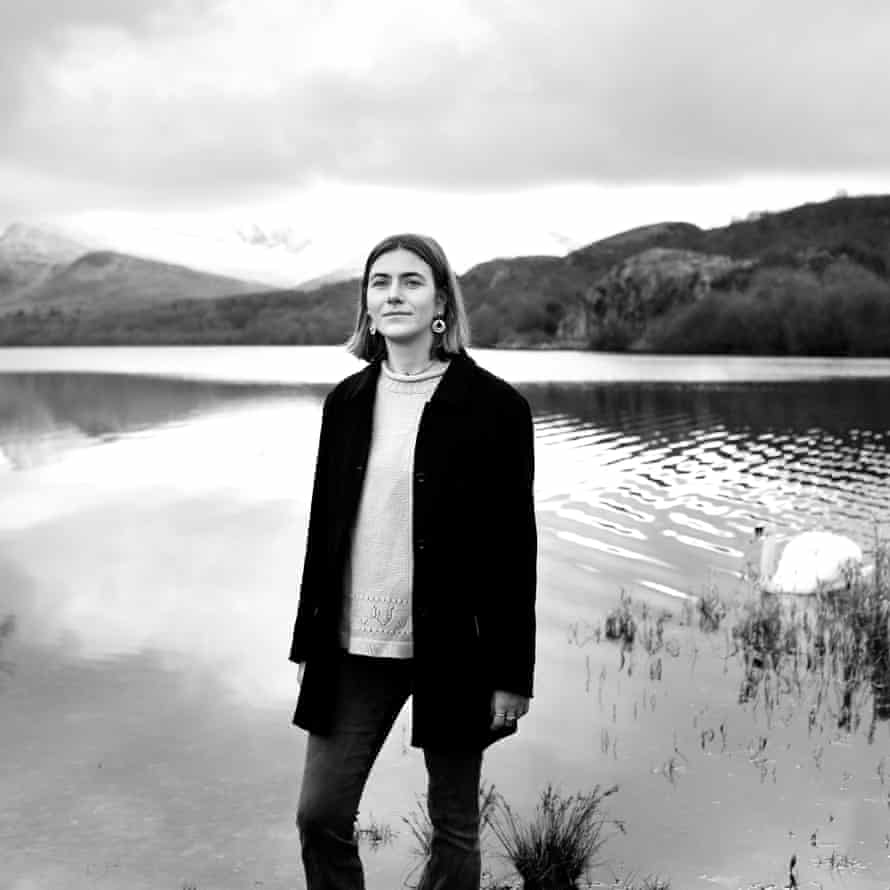
Photograph: Stephen Burke/The Observer
Ailsa McFarlane was born in Seattle and grew up in Snowdonia. She studied to be a vet before dropping out to travel across America. Highway Blue was written while she was in her early 20s – she’s now 23 – and is a beautiful, sun-drenched road story about a young woman called Anne Marie and her relationship with her charismatic ex-husband, Cal. Anne Marie ekes out a precarious existence in the fictional town of San Padua, drinking too much and contemplating the missteps of her young life. Then Cal steps back into the picture after two years’ unexplained absence. After a horrifying encounter with a figure from Cal’s past, the couple take flight. It’s a novel that’s in love with the idea of America, both contemporary in its concerns and deeply nostalgic, full of Edward Hopper diners and faded blue jeans.
Can you sell the book in a single sentence?
This is a novel about outsiders, love and loneliness, and the desire for a sense of belonging.
To what extent were you aware of writing in a tradition – the road trip novel – and is that helpful or not?
For me, it was important to write something that was in conversation with those pre-existing influences; but we’re at a time when people are finding their own voices, so it was about threading between those two. Something that really interests me is to take things that have informed my roots and subvert them and use genre – here the format of the road novel – to play around within it, to put my own spin on it. I also like a slightly raw, ragged and offbeat feel.
San Padua is a fictional town – why did you decide against using a specific location?
Actually, I think that it was really important to write about a place that doesn’t exist. There’s the feeling for both of these characters that they’re looking for a version of home that doesn’t exist, and they move through a version of America. I wanted to put an almost mythological spin on the landscape and have Anne Marie, my narrator, almost invent the world herself.
This is a book built around a complex central relationship between Anne Marie and Cal…
In terms of their dynamic, I wanted to write about people who are clinging more to ideas they have constructed around each other than to the reality of each other – ideas of home and a sense of belonging somewhere. I do think that my own jumping from place to place a lot over the past few years has helped inform that, and I was able to draw on that experience.
What is your favourite debut novel?
Carson McCullers’s The Heart Is a Lonely Hunter, which came out in 1940. I find in the cleanness, the richness, the humanity of her style something that I really love. And I love the earthiness that she has.
What books are on your bedside table?
I’m reading A Single Man by Christopher Isherwood. I began the other day and I just think it’s incredible. The biting cynicism of his style, but coupled with such soul. Again, he has this cleanness that I really enjoy.
What advice would you give a writer just setting out?
Having come from a place where I just wrote on my own – secretly, I guess – I think, dig in to whatever feels raw and slightly rough, but nonetheless feels true to you. See how you can take the place that you come from and challenge it, subvert it, play with ideas about your origins.
Interview by Alex Preston
‘Novels can deal with complex issues in a way that can reject easy arguments’
Will Burns
The Paper Lantern (Orion, 1 July)
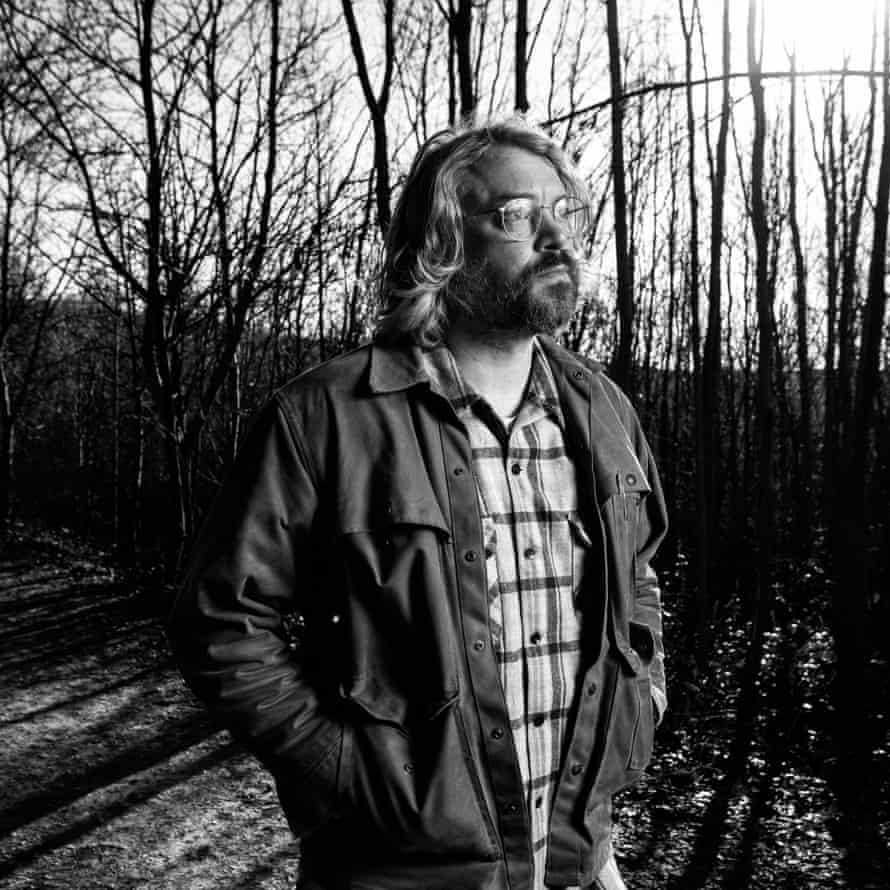
Will Burns is a poet whose first collection, Country Music, was published by Offord Road Books in 2019. He also recorded the album Chalk Hill Blue with the musician Hannah Peel, in which his poems were set to her music. Burns lives in rural Buckinghamshire, a few houses away from where his parents run the village pub.
The Paper Lantern takes its name from the (fictional) pub in which the book’s nameless narrator lives with his parents, and from which he sets out on walks across the Buckinghamshire countryside during the first lockdown of 2020. This is a novel that balances on the line between memoir and fiction, playing with elements of the author’s own life and seeking to take the measure of the country at a time of crisis. The narrator’s walks take him through space and time, from the nearby Chequers estate to illicit raves, all the while accompanied by references to a host of literary fellow travellers.
It’s a book that speaks powerfully about what it is to be English and about the impact of coronavirus on our national psyche.
What was it like to find out your book was going to be published?
It was hugely, hugely exciting. The writing came quickly, and so did the rest of the process, which made for a really quite dizzying experience.
Did you always want to be a writer?
No, I have had periods of wanting to be all sorts of other things – a musician, most lengthily, and ludicrously, I suppose. But writing was there when I was a child, and has probably always been lurking.
What sort of reader were you as a child?
I did read a lot, but probably not precociously or extravagantly. I’ve always loved stories though, and my brother and I shared a bedroom growing up and listened to audiobooks and radio adaptations on tape in bed, right up until we had our own rooms at 16 or 17.
How would you sell the book in a single sentence?
I don’t know that I could sell it in a sentence. I could describe it, but it probably wouldn’t sell it that well. I’d hope it comes off like a funny, angry, melancholy, wistful bar-room conversation, though admittedly perhaps a fairly one-sided one...
Why did you decide to write a novel about this present moment, rather than, say, a collection of poems or songs?
Different art forms have their strengths and weaknesses in the way they can present the complexities, or lack thereof, of those ideas. Novels deal with complex issues over long time spans in a way that can reject easy arguments. The nature of human thought is to argue both sides until you come to your natural position. The novel can do that in a way you don’t see elsewhere.
What’s the best debut you’ve read?
Recently, I absolutely loved Pond by Claire-Louise Bennett. It had such incredible control of an extraordinary voice.
What’s the best writing advice you’ve received?
I think this Dolly Parton quote is a good way of thinking about lots of things: “I’d never stoop so low as to be fashionable.”
Interview by Alex Preston
‘My advice? Develop a philosophy that helps you deal with rejection’
JR Thorp
Learwife (Canongate, 4 November)
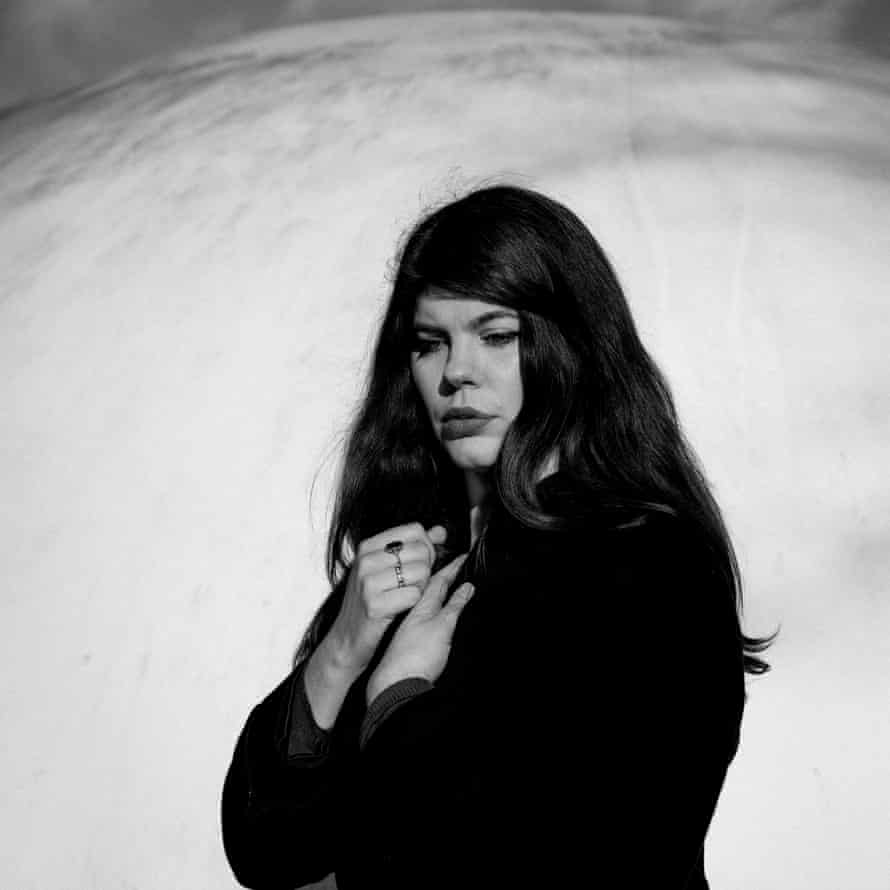
JR – Jennifer – Thorp was born in Australia and now lives in Cork. She won the London short story award in 2011 and wrote the libretto for Dear Marie Stopes, an acclaimed modern opera.
Learwife tells the story of the wife of Shakespeare’s king after the death of her husband. Long exiled to a nunnery, where she is forced to live an isolated and circumscribed existence, the unnamed queen mulls over the reversals of her life, the betrayals and broken promises, plotting her revenge. Then a mysterious sickness begins to infect the nuns.
It’s a novel that joins the likes of Pat Barker, Natalie Haynes and Margaret Atwood in seeking to unearth hidden female stories left unexplored by literary history. Its tale of pestilence and seclusion also has a powerful contemporary relevance. Written in luminous, lyrical prose, it’s a book that defies easy description, being neither historical novel nor fantasy, but mining the best bits from each genre.
How did the book come about?
Actually, the really big catalyst for it was reading Alison Weir’s biography of Eleanor of Aquitaine. I thought: Ah! There is a blueprint here for something really interesting. Exiled to an abbey, married to two very different kings, where can I take this? It seems like an interesting model for what might have happened to this woman.
We’re living through a moment in which there’s real interest in suppressed female narratives. Were you aware of being part of a movement?
I think it was something I was aware of because, growing up, I was obsessed with Margaret Atwood’s The Penelopiad and Wide Sargasso Sea, which I guess are the forerunners of this movement. That idea of the madwoman in the attic, asking why isn’t she there. This book took me since 2015 to write, and a lot of the books you’re talking about have come out in the interim – The Silence of the Girls and A Thousand Ships – but I looked at them and thought: Oh good. I’m not striking out on my own. I’m part of a community that thinks the same way about these things.
The book is very much a family saga…
Actually, the first time I really thought that was when I read an Agatha Christie story called The Moving Finger. A lot of that story is about inherited trauma and people being neglected by their parents. But one of the women in that, who has a very strange relationship with her parents, says as a kind of off-hand thing: “I’ve always wondered why Regan and Goneril were like that. How did their father behave to make them that way?” Now, I must have read that when I was about 12, but it stuck in my head; and so every time I came back to the story I thought: This is the through-line. Why is this family unit the way it is?
What advice would you give to someone just starting out as a writer?
Develop a philosophy that helps you deal with rejection. A lot of people go into writing and they think: I’ll be the exception, I’ll be the one who gets the six-figure deal straight out of my creative writing course. It’s not how it happens. Or only very rarely. Even the people who get the big shiny prizes have been rejected all the way along their path to success. You will be rejected and you need to find a way to be comfortable with that, one that doesn’t impact your sense of self-worth and your ability to make art.
What are you currently reading?
Tara June Winch’s The Yield, which just won the Miles Franklin award. The problem with it is that it so brilliantly evokes the Australian landscape that it makes me really homesick, so I can only read it a little bit at a time. I think, like a lot of people, lockdown has really changed the way I read, so I’ve been reading things like Ross Gay’s The Book of Delights. Just something joyful on every page.
Interview by Alex Preston
‘I started writing as a teenager, mainly tedious poetry’
Rebecca Watson
Little Scratch (Faber, out now)
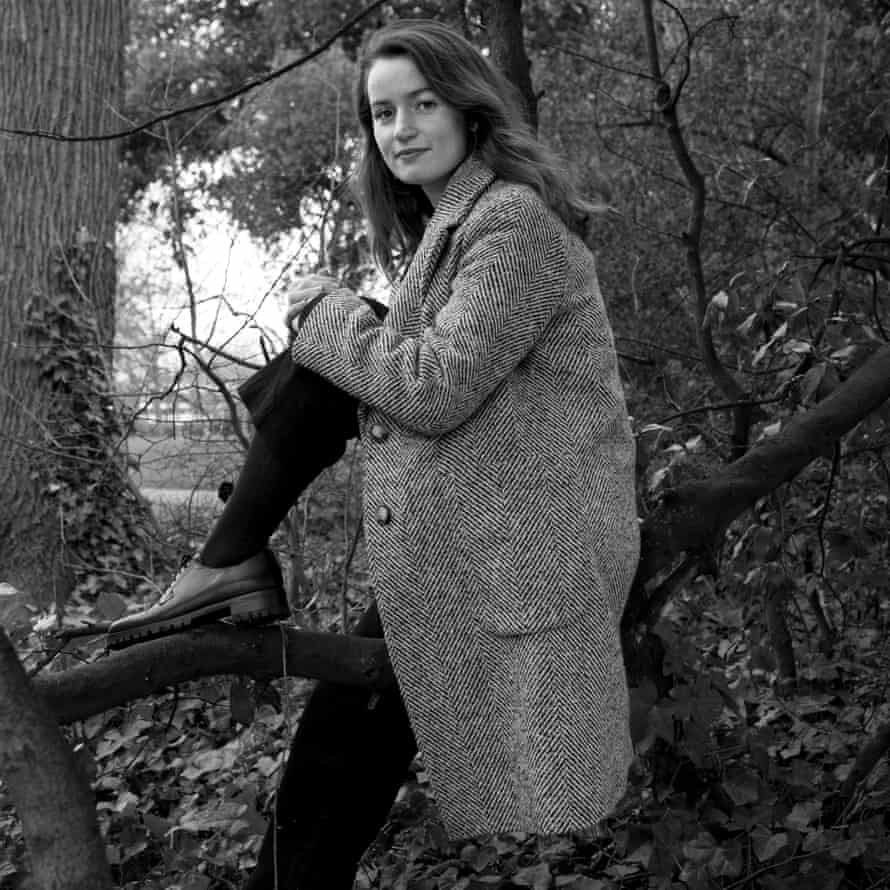
Rebecca Watson’s debut, Little Scratch, was inspired by an embarrassing incident at the offices of the Financial Times, where she works as an assistant arts editor. “An older male colleague walked past and asked me what book I’d been reading recently and my mind went blank. I could hear the air conditioning whirring, I could see the crumbs on the table, but I couldn’t think of a single book,” she says. “When he’d raised his eyebrows and left I sat down and thought, what just happened there? How would you write that exact life experience, with all its conflicting thoughts and feelings, in real time, in the present tense?”
The result is a daringly experimental stream-of-consciousness novel that takes place in a single day, from the moment the narrator wakes up, hungover, late for work, through her commute into central London, her day at the office, followed by a drink with her boyfriend, until the moment she goes to bed at night. Nothing momentous happens, apart from a fictional version of that awkward book-related encounter. Yet 25-year-old Watson’s fragmented, staccato account of what goes on in the mind of the narrator, who is trying not to think about a shocking recent event, is unputdownable and also, at times, extremely funny.
If you had to sell the book in a sentence, what would you say?
Inhabit the mind of a young woman whose navigation of a recent trauma makes getting through one day both a comic performance and an almost impossibility.
What made you want to be a writer?
It’s something I was drawn to at a young age. I grew up in the South Downs in a large, very enthusiastic family with three brothers. My way of politely disengaging and having moments to myself was reading. Books became my thing, a way of asserting my own independence and space. I started writing as a teenager, mainly tedious poetry. Then after I graduated, I wrote something longer, which is still in a drawer somewhere. After that came Little Scratch.
Where do you write, and what is your work schedule?
When I was writing Little Scratch I was full-time at the FT, so it was written at any moment I could find, crammed into lunch breaks and on the train to work. Now I am part-time, I have a far neater and easier way of writing, which is all day Thursdays and Fridays. I give myself a fake working day where I work the exact same hours that I work at the FT, 10am to 6pm, writing my second book.
What is the best debut book you have read?
Eimear McBride’s A Girl Is a Half Formed Thing is surely up there. It’s so charged and so aware of itself, and has a real authority. Debuts often have a real energy, but there is such a clarity of vision in that book, which I think is amazing.
What books are on your bedside table?
Lost Cat by Mary Gaitskill. It’s only about 70 pages, but it looks at different forms of love, finding meaning in life and the narratives that we make about our relationships with people and animals. It’s brilliant. Also, The Muslim Problem by Tawseef Khan, which is coming out in March. It’s brilliantly argued, very open and empathetic. Giving Up the Ghost by Hilary Mantel is there too, because I read it recently and it is lucid and brilliant.
What single piece of advice would you offer to aspiring writers?
To not romanticise the process. I think an easy way of getting caught up in self-doubt is seeing writing as this great mysterious thing that only certain people are born to do. Not everyone is a writer, but I think allowing yourself permission to write is really key. It was really important for me early on, because I am definitely an insecure person.
Interview by Lisa O’Kelly
‘It’s about how the things black women face can have an impact on life expectancy’
Natasha Brown
Assembly (Hamish Hamilton, 3 June)
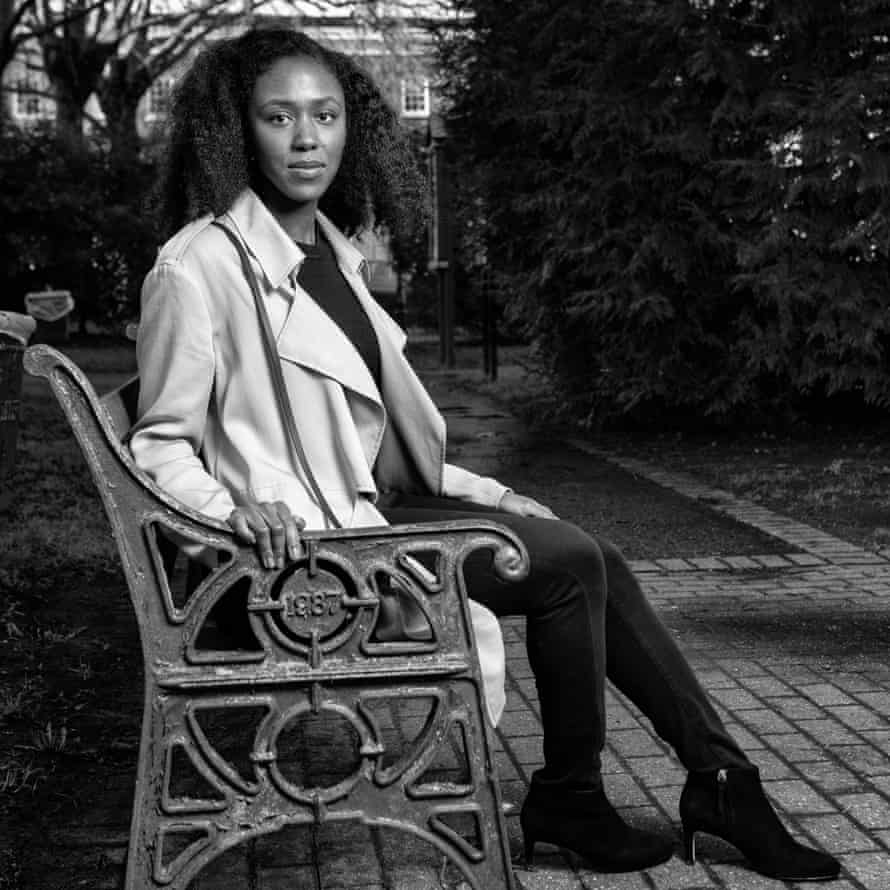
For Natasha Brown, 2020 was quite a year. The 31-year-old, who lives in London, had a place on the London Writers Awards, an annual development programme. Her resulting manuscript was finished by July, and picked up by an agent and bought by a publisher for a six-figure sum by October. “It felt like a whirlwind,” Brown smiles.
Assembly is short – her first draft was only 15,000 words, and confused some agents she sent it to – but diamond-sharp. And it couldn’t have felt more timely and urgent. It follows an unnamed black British woman, who’s been promoted in her finance job, as she prepares for a party thrown by her white, wealthy boyfriend’s family. The prejudice and assumptions she faces as she tries to navigate these worlds make her question the value of the success she’s been chasing. Written in a distilled, minimalist prose, Assembly is illuminating on everything from micro aggressions in the workplace, to the reality of living in the “hostile environment”, to the legacy of British colonialism.
“I knew it couldn’t be too long,” Brown says, “because a character like that is fun for a while… but I don’t think anybody wants to spend too long with her. I see it as almost one half of a conversation; people are going to read it and bring the other half.”
Brown herself works in financial services, and I wondered what that has been like, as a black woman. “In general, moving through the world as a black woman can be quite difficult – I’m not sure the particular industry makes that much difference. The book is a lot about that, and how the things black women face can have an impact on your life expectancy.”
We discuss the Black Lives Matter movement, and she’s warily hopeful. “I think we’ll know in five or 10 years what the impact of the summer really was. But I hope we’re moving towards progress. My narrator takes a dimmer view than I do.”
Brown is optimistic, too, about changes in the publishing industry, but points out that what we need now is more diversity within the diversity. “It’s not just a box tick: within that box, there’s actually a broad spectrum of folks.”
If you had to sell the book in a sentence, what would you say?
It’s set in the late 2010s, it spans just a couple of days, and it’s about a black British woman who, on the cusp of success in her life, stops and re-evaluates everything.
What made you want to be a writer?
It’s not a good sign that that question stumps me! Perhaps it’s less that I wanted to be a writer and more that I really felt compelled to tell this story.
What is your work schedule?
I aim to write 200 words a day, which sounds like a low bar but is a struggle sometimes. My writing hour is 6-7am [before work], and then editing is a weekend affair.
What single piece of advice would you offer to aspiring writers?
For me, the most useful thing was just to actually write. I can get in my own way, so I can’t even write a whole sentence. By getting into a routine, it made it a lot easier to say: I just have to get the words out; making them good is a problem for further down the line…
What is the best debut book you have read?
Lorrie Moore’s Self-Help. I picked a copy up somewhere when I was about 16, and it’s been with me since – reread many times!
What books are on your bedside table?
The Divide by Jason Hickel, nonfiction about how global inequalities developed. I think it’s important to understand how foreign policy works, and it’s super-accessible.
Interview by Holly Williams
‘You hope that you’ve made something with the capacity to absorb and amuse’
Sam Riviere
Dead Souls (W&N, 13 May)
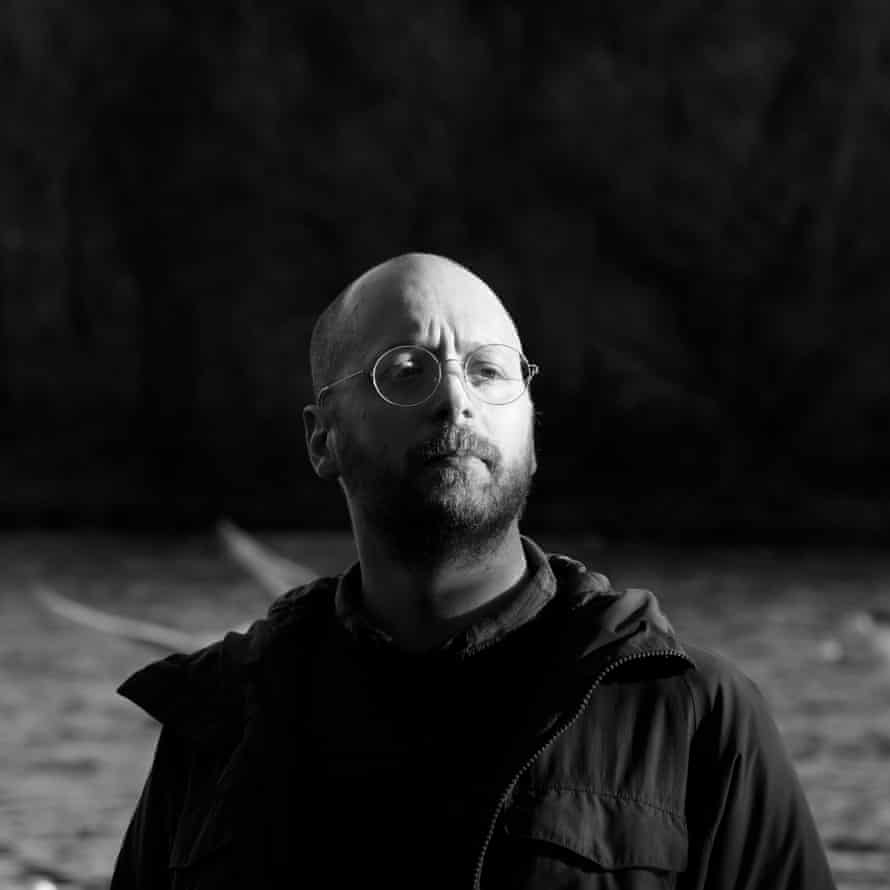
Sam Riviere is the author of several books of poetry, including Kim Kardashian’s Marriage. He started off as a visual artist, then moved into poetry. He also runs If a Leaf Falls Press, which he describes as a “micropublisher” of avant-garde writing.
His first novel, Dead Souls, borrows its title from Gogol, and explores plagiarism, literary celebrity and disgrace. The book tells the story of a night at the bar of a Travelodge hotel in Charing Cross. In sinuous, ornate prose rendered in a single paragraph that stretches over the whole of the novel’s 300-plus pages, the unnamed narrator recounts his meeting with Solomon Wiese, an author whose work has been discredited by a sophisticated piece of plagiarism-detection software. The book is full of clever postmodern flourishes, self-referential winks and riotous set pieces. It’s funny, smart and beautifully written.
How did this novel come together?
The gestation period was long, I think, and in a way not deliberate, but once it became clear to me how to do it, the book was enjoyable to write. I liked going back to it every day – it’s reassuring to have a task that extends over weeks and months, like digging a tunnel that you hope leads somewhere eventually. The aspect of scale is sometimes challenging to manage – details affect other details – and something that was new to me, having only written poetry books before this. I had to make three separate but connected timelines. Ideally, I’d have made some kind of animated 3D timeline.
How did you feel when you found out it was going to be published?
Elated – you hope that you’ve made something with the capacity to absorb and amuse another person, but you can’t know if that’s the case while you’re making it.
Did your publishers push back when you presented them with a novel that was a single paragraph?
Perhaps to my surprise, no, because it does feel like a strange decision. The unparagraphed prose block seems to do something for velocity. It becomes more relentless, somehow.
What do you love most about being a writer?
The relationship you have with a reader who “gets” the work seems extremely intimate and at the same time extremely remote. These encounters, from the reader’s side, have been very meaningful to me, and seem unlike encounters with other kinds of artworks, or with people. The chance to make that kind of private and deep though also strangely formal connection with someone, over time or distance or even across languages, is maybe the main reason for writing at all. But on the other hand, if it happens I will probably never know about it.
Could you sell the book in a single sentence?
It’s about poets and technology, love and revenge.
What’s your favourite debut novel?
It’s not a novel, but I loved Deborah Eisenberg’s first collection of short stories, Transactions in a Foreign Currency. Am I allowed that? She should be much better known. She’s just so funny. Like Lorrie Moore but better.
What books are on your bedside table?
I’ve been reading Milan Kundera, whom I’d never got to before. I’m also working my way through Deborah Eisenberg’s back catalogue. Dag Solstad is a Norwegian writer I’ve only recently discovered. In poetry, I’m reading Wong May, a Chinese-American poet based in Ireland.
Is writing a lonely existence?
The conditions of solitude have changed. You can be physically alone, but in touch with a lot of people on and off throughout a day. And from an exterior vantage, writing is no different from countless other contemporary occupations – you’re sitting in front of a laptop. So no, a writer’s life is no more inherently lonely than most people’s lives – but this is a romantic idea that writers like to perpetuate because it makes them feel important.
Interview by Alex Preston


No comments:
Post a Comment